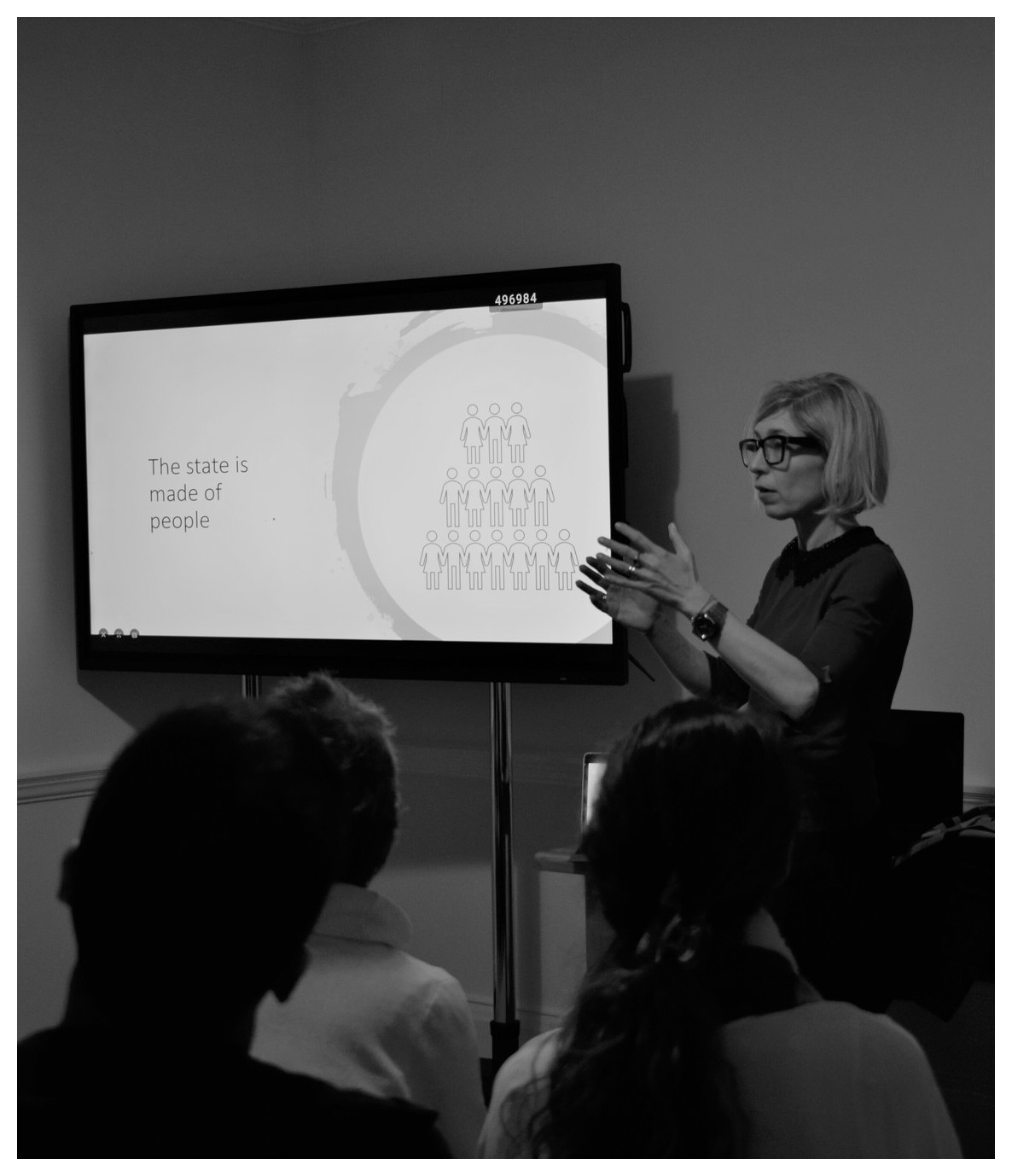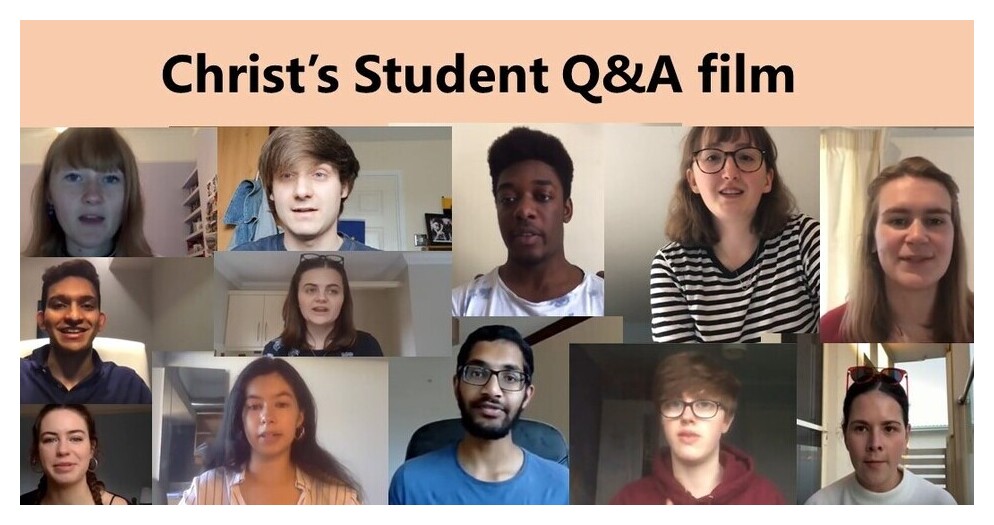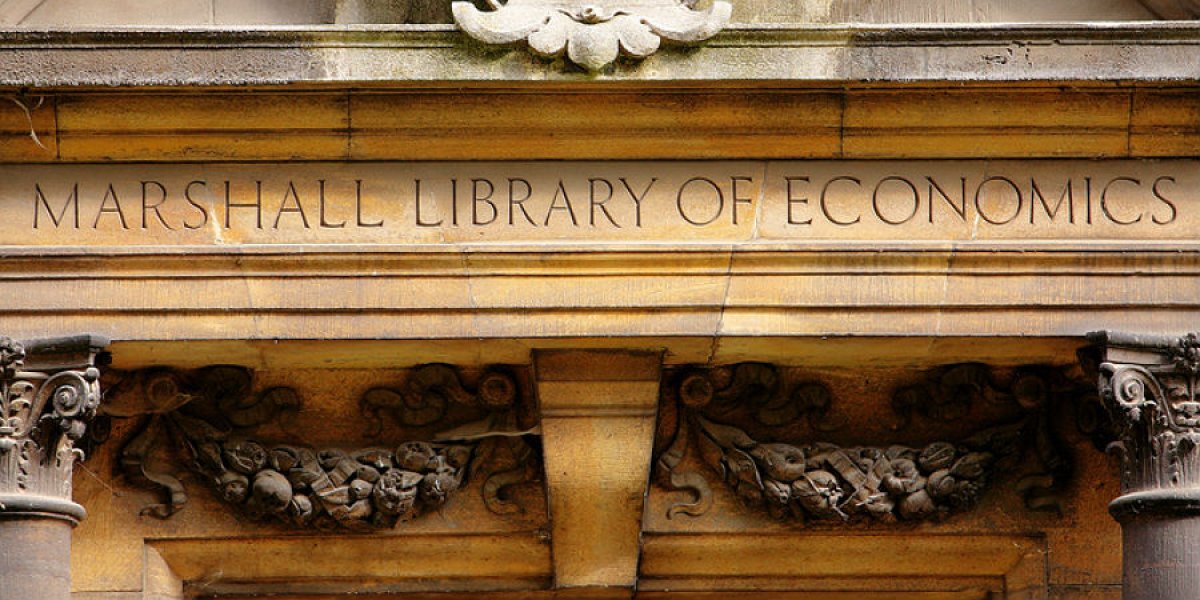ECONOMICS TASTER SERIES - JAMES MEADE
Weekly online taster sessions throughout March and optional opportunity to visit Christ's in April. For students: currently in Year 12 (Y13 Northern Ireland, S5 Scotland) studying Mathematics AND Further Mathematics at A-Level, Maths: Analysis and Approaches at IB Higher Level, Scottish Higher Maths, or equivalent qualification attending a school or college that does not charge fees
Deadline 11th February - full details, dates, eligibility criteria and event page
Why study Economics at Christ's?
Women in Mathematics Residential
As well as top-class teaching, you’ll find a friendly student community of around 20 undergraduates and 10 graduates in Economics each year. This makes it easy to get to know everyone, especially as we host regular lunches, dinners and drinks during the year. Our students tend to work together – a key factor in their exam success and satisfaction with Cambridge – so many keep in touch after graduation and return for social events.
Christ's has been an intellectual home to many successful Economics scholars, including Nobel Prize laureate James Meade (1907-1995). Amongst other events, our bi-annual Meade Lectures in Economics bring world-leading economists to Christ's, and students often have the opportunity to enjoy an informal lunch with the speakers.
Other famous alumni include:
- Prof Simon Burgess | Professor of Economics at the University of Bristol
- Alex Brazier | Member of the Financial Policy Committee at Bank of England
- Goh Soon Poh | Auditor-General of Singapore
- Heng Swee Keat | Deputy Prime Minister and Minister for Finance in Singapore
We are lucky to have students from all over the world: alongside British nationals our current group of Economists includes students from China, Hungary, Ireland, Italy, Korea, Malaysia, Netherlands, Russia and Singapore. Our students' performance in economics has been consistently outstanding. Over the last ten years Christ's students have achieved on average the highest scores for economics across the University.

giving a masterclass in College
Some of our graduates move on to further study at top universities across the globe, including UCL, Princeton and LSE. Many join management consultancies (Goldman Sachs, UBS, KPMG Strategy&, Bane) investment banks (Deutsche bank, Goldman Sachs, Macquarie) and economics consultancies (RBB, Frontier Economics).
Some work for companies such as Argos, Network Rail and Greater Anglia, or for government for in HM Treasury, Department for Transport, Bank of England and the Central Bank of Malaysia. And others opt for entirely different paths – we’ve had an opera singer and an orchestra conductor too.
News:
- On 13 February 2020, Oriana Bandiera, FRA, Sir Anthony Atkinson Professor of Economics and Director of STICERD, LSE, gave a Masterclass to our students as part of the Women at Christ's celebrations.
Course content and structure
The Economics course (or ‘tripos’) is a three-year degree. From second year on you can study particular areas in greater depth, and in the final year you write a dissertation on your chosen topic.
Please visit the University website for full details of the Economics course content and structure.
Teaching
Teaching in Economics at Christ's is traditionally very strong and maintained by our academic economists:
- Professor Sanjeev Goyal, Social and economic networks.
- Dr William Peterson, Applied econometrics, macroeconomic modelling, input output analysis and energy economics
- Dr Julia Shvets Applied microeconomist
- Mr Daniel Wales Macroeconomics, with interests in both international and monetary economics. Christ’s Economics Director of Studies in 2021.
Last year we also welcomed two Distinguished Visiting Scholars in Economics from Yale University:
- Prof Naomi Lamoreaux, Economic historian and Pitt Professor 2018-19
- Prof Larry Samuelson, Microeconomic theorist
As well as lectures organised by the University, you have weekly ‘supervisions’ at the College arranged by Director of Studies Dr Julia Shvets. These small-group tutorial sessions give you the advantage of personally-tailored tuition and guidance.

What do our students think?
Read about the experiences of Sanchit and Luke who are studying Economics at Christ’s.
If you’d like to hear from other Christ's students, please watch the Christ's student Q&A film, and visit our Student Profiles page.
How to apply
Visit How to Apply for full details and a timeline of the application process. We welcome applicants from all backgrounds and school types, all over the world. If you're applying from outside the UK, please read our international students section.
Subject Requirements
Economists have found that mathematical modelling provides a useful tool in analysing trade-offs faced by individuals and societies. It allows us to precisely articulate the assumptions we make about people's behaviour, and to test our hypotheses on data. Hence, the central requirement for admission to Cambridge's Economics programme is fluency in basic mathematical and statistical methods. At Christ's we will require an A* in A-level Mathematics, a Grade 7 in IB Higher Level Mathematics, or an equivalent performance in other Mathematics qualifications (IB students in the new Maths syllabus will need Grade 7 in Higher Level Analysis and Approaches).
In addition, we at Christ’s consider Further Mathematics a highly desirable background for applicants doing A-levels. If your school doesn't offer Further Mathematics, you may be able to get support from the Advanced Mathematics Support Programme. If it’s not possible for you to study Further Mathematics to the full A-level, we encourage you to self-study AS level Further Mathematics or to take as many extra mathematics modules as possible. A number of our international candidates (from countries where you study a wide range of subjects at school in the final two years) take part in Mathematics competitions as a way to focus on extending mathematical knowledge and ability.
We do not require candidates to have studied Economics at school. However, applicants should have a vivid interest in Economics as a discipline and the questions it poses about individuals, organizations and societies.
Alongside A-level and International Baccalaureate students, we welcome applications from students enrolled in other programmes. In recent years, we have admitted a number of people who studied for the German Abitur, Singapore A levels, and other international qualifications, and we have a dedicated section for international applicants.
If you have any concerns about the subject requirements for Economics in relation to your school subjects, it would also be a good idea to read Exploring courses: Economics.
Pre-interview Admissions Assessments
All students applying to the University of Cambridge for Economics in October 2022 must sit a pre-interview admissions assessment called the Test of Mathematics for University Admissions (TMUA). This will take place in your school, college or local testing centre in early November. The same assessment is used regardless of which College you have applied to, and preparation information is provided on the website above. The test forms part of our holistic admissions process: there is no set score that we are looking for. When applying, it is important to be aware of the registration and assessment dates:
- Economics applicants should be registered to take the Test of Mathematics for University Admissions (TMUA). Ideally be registered by 1 October. See how to be registered and cost information (including eligibility information for fee reimbursement). Please note that open centres may set an earlier deadline for accepting entries, and it is your responsibility to check if this applies at your centre.
- Economics applicants sit the TMUA in early November.
Interviews
If we invite you for interviews, these usually take place in early December. Those invited for Cambridge interviews are normally interviewed for 35-50 minutes in total. At Christ’s, we usually split the time into two interviews with academics in Economics. The aim of the interviews is to try to determine applicants' potential to benefit from the Economics Tripos. The interviews have no fixed format but typically include working through some mathematics problems and a discussion of economic issues. Before one of the interviews, the candidates are typically given a set of mathematical problems and a bit of time to work through them, with the aim of discussing the questions in the interview. Further, more general information about interviews (including two useful films) is available in the Cambridge interviews section.
We also hold interviews in a number of locations overseas. If this may be relevant for you, please see the international students section .
Offers
You need to be academically ambitious: our typical Economics offer for A-level candidates is A*A*A, including A* in Mathematics, and for IB candidates 42 points overall, with 776 at Higher Level including 7 in Higher Level Mathematics (Analysis and Approaches), but the majority of Christ’s students arrive with higher grades. If you are studying in another qualification system we would expect you to be working at or close to the top of the mark range. The international students section has information about typical offers for international qualifications.
If you will apply after you have finished school, please see our page for post-qualification applications.
Helpful Resources
When we assess your application, it will be impressive if, as well as doing well at school, you are developing your relevant skills (e.g. maths) and interest in Economics further by going beyond your school curriculum. Here are a few resources and suggestions which may be helpful, and we recommend that you explain how you have developed your skills and interest in the subject in your UCAS personal statement.
| Christ's Economics Taster session | A filmed session on using Maths to understand human beings, given by Dr Julia Shvets in May 2021. | |
| Economics Open Day (Film) | July Open Day talk, 2019 | |
| Economics Faculty Short Films |
Why study Economics? (Part 1) What do you look for? |
|
| Advanced Mathematics Support Programme | A programme that offers advice about choosing A level Further Mathematics, revision events, enrichment materials and activities, and tuition, when it is not available through your school or college. See in particular A level Mathematics and A level Further Mathematics, as well as Resources for self-study and the Further Maths Fact Sheet. | |
| MEI (Maths Education) | Resources for students studying Maths at home | |
| NRICH Maths for Economics | Mathematics problems with an economic flavour or application. | |
| Freakonomics | Economic analysis website in which economic theory is used to explore a very wide range of topics! It includes this episode on barriers to changing your mind in which Dr Julia Shvets is interviewed on her research into overconfidence. | |
| Plus Magazine |
Articles and podcasts on any aspect of mathematics, showing the wide range of uses maths gets put to in the real world. See, for example, Adam Smith and the invisible hand. |
|
| Economics preliminary reading list | Cambridge Faculty of Economics reading list to help potential candidates who are thinking of applying to read Economics at Cambridge. | |
| Statistics | More or less (Radio 4 programme available as podcasts) How to make the world add up (filmed talk) Spiegelhalter, D (2019) The Art of Statistics, Pelican books |
|
| Covid-19 |
Cambridge Covid-19 Economic Research |
|
| 3Blue1Brown Youtube |
See for example Exponential growth and epidemics and Simulating an Epidemic |
|
| What Economists really do | A helpful Royal Economics Society talk with Prof Oriana Bandiera | |
| The Economist | Weekly publication on international news, politics, business, finance, science, technology and the connections between them. History and further information. | |
| VMACS | Virtual Macro Seminar Series | |
| HE+ Economics | Website for secondary school students who want to explore Economics. | |
|
Economics blogs |
Blog introduction lists such as this one will help you find interesting material (e.g. Greg Mankiw, Tim Harford) |
|
| Discover Economics | Website for 15-17 year olds | |
|
Essay competitions |
Entering an essay competition is a good way to find out more about a relevant topic and get some extra practice in writing a convincing and well-structured essay. |
|
| CamGuides | Introducing the academic and information skills that you will need during your studies, as well as how and where you would be working | |
| The Economics dissertation | Information and example of the final year dissertation | |
Open Days and Online Events
Online events: Our open days and events page advertises online opportunities as well as events in Cambridge, and includes College Open Days where you can talk to staff and current students about the course. As part of our outreach programme, we also run an annual Economics Taster Day on James Meade for prospective Economics students who attend a state school.
Subject-specific opportunities you might wish to consider include and The in the Cambridge Festival, Subject Masterclasses organised by Cambridge Admissions Office, and Economics-specific talks in the July Cambridge Open Days. If you are a UK student from a background where there is little tradition of entry to Higher Education, you can apply to attend a Sutton Trust Summer School in Economics or to shadow a current Economics undergraduate via the Cambridge SU Shadowing Scheme (do be aware that there's a high proporton of applicants to places for both of these last two opportunities, so please don't be discouraged if you are not given a place).
Want to know more?
For a fuller picture of what the course involves, take a look at Undergraduate Economics admissions on the University website and read the Faculty of Economics information for prospective students too.
If you have any queries, please send them to admissions@christs.cam.ac.uk and we’ll help however we can.
Undergraduate Admissions main page / Back to the subject list / How to apply / Why choose Christ's? / Economics Taster Day
- Anglo-Saxon, Norse & Celtic
- Archaeology
- Architecture
- Asian & Middle Eastern Studies
- Chemical Engineering and Biotechnology
- Classics
- Computer Science
- Education
- Engineering
- English
- Geography
- History
- History and Modern Languages
- History and Politics
- History of Art
- Human, Social and Political Sciences
- Land Economy
- Law
- Linguistics
- Management Studies
- Mathematics
- Medicine
- Modern and Medieval Languages
- Music
- Natural Sciences
- Philosophy
- Psychological and Behavioural Sciences
- Theology, Religion, and Philosophy of Religion
